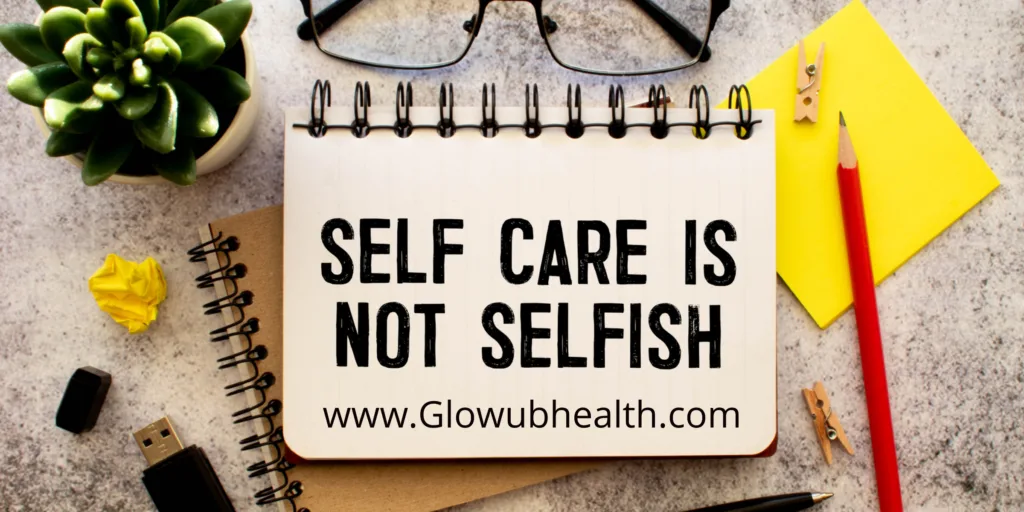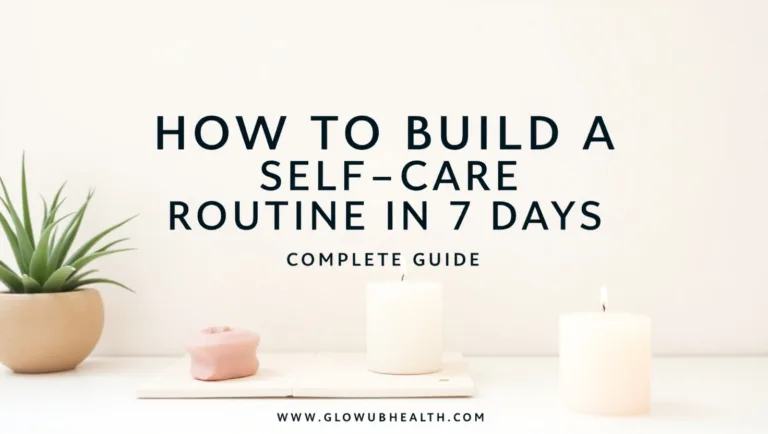Self-Care Tips : Top 10 Ways to Achieve a Balanced Life Daily
In our fast-paced world, maintaining balance in life can often feel like a daunting challenge. Between work, family, and personal commitments, it’s easy to let self-care fall by the wayside. However, by adopting regular self-care practices, you can create a sense of stability and joy, even amidst the busyness of daily responsibilities.
This guide offers practical, effective self-care tips designed to nurture your physical, mental, and emotional well-being each day. Whether you’re looking to reduce stress, improve your health, or find more balance in your routine, these actionable suggestions will help you integrate self-care into your lifestyle, building sustainable habits that support long-term wellness.
This article is for informational purposes only and does not constitute medical advice, diagnosis, or treatment. Before starting any new self-care practices or routines, it’s advisable to consult with a healthcare provider, especially if you have pre-existing health conditions.

The Importance of Self-Care
Self care isn’t just an occasional indulgence; it’s an essential practice for managing stress, avoiding burnout, and maintaining well-being. These self-care tips for mental health and overall wellness go beyond temporary relaxation and help build resilience and satisfaction in daily life.
Research reveals that people who routinely practice self-care feel less stressed and better equipped to handle life’s ups and downs.
Top 10 Self-Care Tips for a Well-Balanced Life

1. Make Quality Sleep a Priority
Good sleep is essential for clarity of mind, positive mood, and physical energy. To enhance your sleep quality:
- Develop a calming pre-sleep routine, like reading or meditating.
- Stick to a consistent bedtime, even on weekends.
- Avoid screens and caffeine in the hour before bed.
Personal Experience: Establishing a regular sleep pattern significantly improved my focus and energy.
2. Practice Mindfulness and Meditation
Practices like mindfulness and meditation are powerful self-care techniques for stress management, known for lowering stress hormones and promoting peace of mind.
Start with five minutes a day:
- Use meditation apps like Calm or Headspace for guidance.
- Concentrate on your breath, taking slow, deep breaths.
- Gradually extend your practice time as it becomes more comfortable.
3. Fuel Your Body with Nutritious Foods
Eating well not only nourishes your body but also supports mental and emotional health.
Try to incorporate:
- A variety of vegetables, fruits, lean proteins, and whole grains.
- Healthy fats such as avocados, nuts, and olive oil.
- Plenty of water throughout the day to stay hydrated.
Quick Tip: Try meal-prepping on weekends to ensure you have healthy choices all week long.
Read More: Balanced Nutrition: The Complete Guide to a Healthier Lifestyle
4. Set Boundaries to Conserve Energy and Time

Setting boundaries is a powerful tool for managing your energy levels and avoiding overcommitment.
This is particularly effective among self-care tips for women and men:
- Practice saying “no” without feeling obligated to explain.
- Define your working hours to prevent burnout.
- Clearly communicate your boundaries with family, friends, and colleagues.
Case Study: Research shows that individuals with strong boundaries report 60% higher satisfaction in their work-life balance.
5. Incorporate Physical Activity Daily
Physical movement isn’t just about fitness; it’s a beneficial tool for mental and emotional health as well.
Aim for at least 30 minutes a day:
- Consider group classes or activities for motivation and accountability.
- Choose enjoyable activities like walking, dancing, or yoga.
- Plan workouts ahead of time to make them part of your routine.
Read More: How to Start a Workout Routine: 10 Proven Ways to Build Consistency
6. Reduce Screen Time for Mental Clarity
Excessive screen time can lead to eye strain, stress, and even anxiety.
Reducing digital exposure is an effective self-care tip for mental health:
- Set daily limits for social media and non-essential apps.
- Take regular breaks, following the 20-20-20 rule: every 20 minutes, look 20 feet away for 20 seconds.
- Create tech-free spaces in your home, like the bedroom or dining area.
Personal Insight: Limiting screen time allowed me to reconnect with my hobbies and enjoy more quality time with loved ones.
7. Build and Maintain Supportive Relationships

Good relationships are foundational to a balanced life. They offer support and joy that are essential for well-being.
Invest time in people who lift you up:
- Schedule regular calls or meetups with family and friends.
- Join groups or communities that share your interests (like book clubs or sports teams).
- Engage fully in conversations and practice active listening.
Example: Studies indicate that people with strong social connections enjoy a 50% greater likelihood of living a longer, healthier life.
8. Practice Daily Gratitude
Practicing gratitude is linked to improved happiness, reduced stress, and stronger mental health.
To make gratitude part of your routine:
- Write down three things you’re thankful for each day.
- Pause to appreciate small, positive moments throughout your day.
- Show appreciation to others whenever you can.
Quick Tip: Keep a gratitude journal near your bed to start or end each day with a positive mindset.
9. Engage in Creative Activities

Expressing yourself through creativity—whether in painting, writing, or crafting—relieves stress and enhances mood. Prioritizing time for hobbies brings joy to life:
Focus on the process and expression, rather than on perfection.
Pick activities you’re interested in, even if you’re a beginner.
Dedicate time each week to enjoy your creative outlet.
10. Set and Review Your Goals Regularly
Setting clear goals keeps you aligned with your values and supports personal growth.
Review your goals every month or quarter:
- Establish specific, achievable goals across different areas of life (e.g., work, relationships, health).
- Celebrate your small wins along the way.
- Adjust your goals as needed based on your current situation.
Personal Insight: I find that revisiting my goals each month helps me stay motivated and reminds me of my accomplishments.
Additional Self-Care Tips for Mental Wellness
Since everyone has unique needs, experimenting with various self-care tips for mental health can help you find what fits best.
Here are a few techniques to try:
- Create a Self-Care Kit: Fill a small kit with comforting items (like a cozy blanket, herbal teas, or favorite snacks) to have on hand when you need a quick relaxation moment.
- Breathing Exercises: Start with a basic breathing technique: inhale for 4 counts, hold for 4, and exhale for 4. Repeat 5 times to calm your mind.
- Journaling: Spend 5–10 minutes each day writing down thoughts, emotions, or plans. Journaling can help clarify feelings and release tension.
- Nature Walks: Aim to spend 10–20 minutes outdoors each day; nature exposure has been shown to reduce stress and boost mood.
Ways to Integrate Self-Care into Everyday Life

Incorporating self-care into your daily routine doesn’t require hours of your time. Instead, you can adopt small yet impactful practices that can enhance your overall well-being.
Here are 10 ways to take care of yourself throughout your day:
Morning Routine
- Cultivate Gratitude
Start your day by acknowledging three things you appreciate in your life. This simple habit can foster a positive mindset and help you face the day with a sense of gratitude. You might consider keeping a gratitude journal on your nightstand to capture these thoughts as soon as you wake up.
- Incorporate Stretching
Dedicate just five to ten minutes each morning to stretch your body gently. This practice can alleviate any stiffness from sleep and stimulate circulation, leaving you feeling revitalized. Focus on major muscle groups, such as your back, shoulders, and neck, to help release built-up tension.
- Set a Daily Intention
Take a moment each morning to visualize your goals for the day. Setting an intention can guide your actions and help you maintain focus. Whether you aim to approach challenges with patience or prioritize kindness, this mental exercise creates a clear path for your day.
During the Day
- Take Short Movement Breaks
Incorporating brief movement breaks throughout your day can enhance your focus and minimize stress. Aim to stand, stretch, or take a short walk every hour. These quick activities can re-energize you and help alleviate the negative impacts of prolonged sitting.
- Practice Deep Breathing
Integrating deep breathing exercises into your day can be an effective way to regain your composure, particularly in stressful moments. Try inhaling deeply through your nose for four counts, holding for four, and exhaling slowly for six counts. Even a minute of this practice can help alleviate anxiety and restore your sense of calm.
- Spend Time Outdoors
Whenever you can, take a few minutes to step outside for fresh air and sunlight. Nature has a soothing effect and can uplift your spirits. Even a brief walk around your neighborhood can provide a mental break and help you feel more connected to your surroundings.
Evening Routine
- Limit Screen Time
Set a time to turn off your electronic devices, ideally at least an hour before bedtime. The blue light emitted by screens can interfere with your sleep patterns and keep your mind engaged. Use this time for more calming activities that help you wind down for the night.
- Enjoy a Good Book
Reading can be a delightful way to relax and escape from daily stressors. Choose a genre that interests you, whether it’s fiction, non-fiction, or self-help. Spending 15-30 minutes reading before bed can help ease your mind and prepare you for a restful sleep.
- Indulge in a Warm Bath
Taking a warm bath can be an excellent way to relieve physical tension and promote relaxation. Consider enhancing your bath with Epsom salts or soothing essential oils, like lavender. Even a 20-minute soak can help calm your mind and create a tranquil environment for sleep.
- Reflect on Your Day
Before turning in for the night, spend a few moments reflecting on your day. Think about what went well, any challenges you faced, and how you navigated them. This reflection can help you process your experiences and foster a sense of closure, allowing for more peaceful sleep.
By weaving these self-care strategies into your daily life, you create a sustainable routine that prioritizes your well-being. Small adjustments can lead to significant improvements in your mental, emotional, and physical health.
Start with one or two techniques that resonate with you and gradually expand your self-care practices as you discover what best supports your needs.
Conclusion
Embracing self-care is essential for living a balanced and fulfilling life. By consistently integrating these self-care tips into your daily routine, you are proactively supporting your mental, physical, and emotional well-being.
Remember, self-care isn’t a luxury; it’s a necessity for maintaining resilience, reducing stress, and enhancing your overall quality of life. Whether it’s prioritizing sleep, practicing mindfulness, or setting boundaries, each small effort adds up to a stronger, more balanced you.
Start with one or two practices, stay consistent, and watch how prioritizing self-care can transform your daily experience and elevate your happiness. The journey to a healthier, more centered life begins with the simple act of taking care of yourself.
FAQ:
1. What is self-care?
Self-care refers to the intentional actions and practices we engage in to maintain and improve our mental, emotional, and physical well-being. It encompasses various activities that help reduce stress, enhance mood, and promote overall health.
2. Why is self-care important?
Self-care is crucial because it helps prevent burnout, reduces stress, and fosters resilience. Regular self-care practices improve mood, increase productivity, and enhance our ability to cope with life’s challenges. Taking time for self-care can lead to a more balanced and fulfilling life.
3. How can I start practicing self-care?
To begin practicing self-care, start by identifying your needs and what makes you feel rejuvenated. Choose one or two self-care practices that resonate with you, such as journaling, meditation, or engaging in physical activity. Gradually incorporate these practices into your daily routine.
4. Can self-care be quick?
Absolutely! Self-care doesn’t have to be time-consuming. Even short practices, like deep breathing exercises or a quick walk, can have a significant positive impact on your mental and emotional state.
5. What are some self-care tips for mental health?
Some effective self-care tips for mental health include:
–Engaging in mindfulness or meditation.
–Maintaining a gratitude journal.
-Setting boundaries to protect your time and energy.
-Connecting with loved ones.
-Seeking professional help when needed.
6. How can I ensure I prioritize self-care?
To prioritize self-care, schedule it into your calendar like any other important appointment. Setting aside dedicated time for self-care practices can help you remain accountable. It can also be helpful to create reminders or to-do lists that encourage you to engage in these activities regularly.
7. Are there specific self-care tips for women?
Yes, self-care tips can be tailored to women’s unique needs, such as:
–Practicing body positivity and self-acceptance.
-Engaging in activities that foster female friendships and support.
-Setting aside time for hobbies and interests.
–Monitoring hormonal health and seeking medical advice when necessary.
8. How can I make self-care a habit?
To make self-care a habit, start small by incorporating one or two practices into your daily routine. Consistency is key, so aim to engage in these practices regularly. Over time, you can build on these habits, gradually expanding your self-care repertoire.
9. Is self-care the same as being selfish?
No, self-care is not selfish. Taking time for yourself allows you to recharge, which can improve your capacity to care for others. By prioritizing your own well-being, you are better equipped to support your loved ones and handle life’s demands.
10. How can I find the right self-care practices for me?
Finding the right self-care practices involves self-exploration. Pay attention to activities that make you feel relaxed, rejuvenated, and fulfilled. Experiment with different practices, such as yoga, reading, or creative outlets, to discover what resonates with you and meets your needs.






